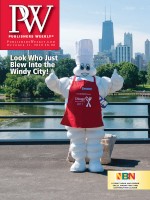As publishers prepare for the fireside reading season, they're counting on scholars to light a flame by bringing insights on religion to general audiences far removed from campus. It's all part of an effort to capture more of what scholars have to offer, beyond a mountain of footnotes, for readers who crave books from experts.
Publishing scholars for general audiences has long been tricky. Religion sociologist Scott Thumma, author of Megachurch Myths (Jossey-Bass, 2007), says scholars in his field have little incentive to write for nonacademic audiences. "If a tenured faculty member writes for a nonacademic press, it doesn't count to their school or to the scholarly community, so very few do it," Thumma notes.
Even when scholars are well established in their field and want to "break out" to reach wide audiences, they often struggle to gain readerships. "Most scholars are not able to pull it off," says Mark Tauber, senior v-p and publisher at HarperOne. "But for those who can—who have the ability to not only write but also present themselves in accessible ways to untrained folks—it's an incredible asset."
Despite systemic obstacles, publishers are increasingly encouraging scholars who demonstrate the potential and passion to "break out." Baylor University Press aims to grow sales and fulfill its outreach mission by tailoring more of its books for a general audience of educated Christian laypeople, according to Nicole Murphy, director of marketing. In October BUP will release The Friends We Keep: Unleashing Christianity's Compassion for Animals by Laura Hobgood-Oster, a professor of religion and environmental studies at Southwestern University.
Murphy and Tauber say they've seen schools become somewhat more supportive of faculty who aspire to be well-known authors. One reason: it helps raise a school's profile. Boston University may soon see such a boost as a young assistant professor of New Testament, Jennifer Wright Knust, defies academic norms and publishes Unprotected Texts: The Bible's Surprising Contradictions About Sex and Desire (Feb. 2011) with HarperOne.
Veteran scholars with a proven track record once again dominate this season. Robert Putnam, author of the widely acclaimed Bowling Alone (Simon & Schuster, 2001), is doing what his editor calls an "old-fashioned multicity book tour" with coauthor David Campbell to promote American Grace: How Religion Divides and Unites Us (S&S, Oct.).
Repeat Daily Show guest Bart Ehrman (Misquoting Jesus) takes on biblical provenance with Forged: Writing in the Name of God—Why the Bible's Authors Are Not Who We Think They Are (HarperOne, Mar. 2011).
As publishers give scholars a wider platform, they're rolling out books that have both an intellectual and practical value. Historian Thomas Kidd's God of Liberty: A Religious History of the American Revolution (Basic, Oct.)—in what might be a parable for navigating today's religious tensions—tells how evangelicals and deists came together around the principle of religious liberty.
Says Lara Heimert, v-p and editorial director of Basic Books, "I think it is useful for everyone to look back and see that the lines we've drawn politically in America now were not always so clear."
Yale University Press, which has beefed up promotion of its religion list since the 2008 launch of the Anchor Yale Bible series, is also mining history to enrich readers' faith lives. Robert Kiely, a Harvard professor emeritus of English literature, animates the lives of saints in Blessed and Beautiful (Oct.), a richly illustrated volume.
At Eerdmans, a scholar-as-guide motif aims to equip Christians to live faithfully in a complex world. In Good and Bad Ways to Think about Religion and Politics (Oct.), Robert Benne warns against the perils of equating faithfulness with pursuit of one or another political agenda.
Soon readers will have their say about which scholarly insights they find most helpful. And like good pupils, publishers will be taking notes.



 Volume 257
Issue 40
10/11/2010
Volume 257
Issue 40
10/11/2010





